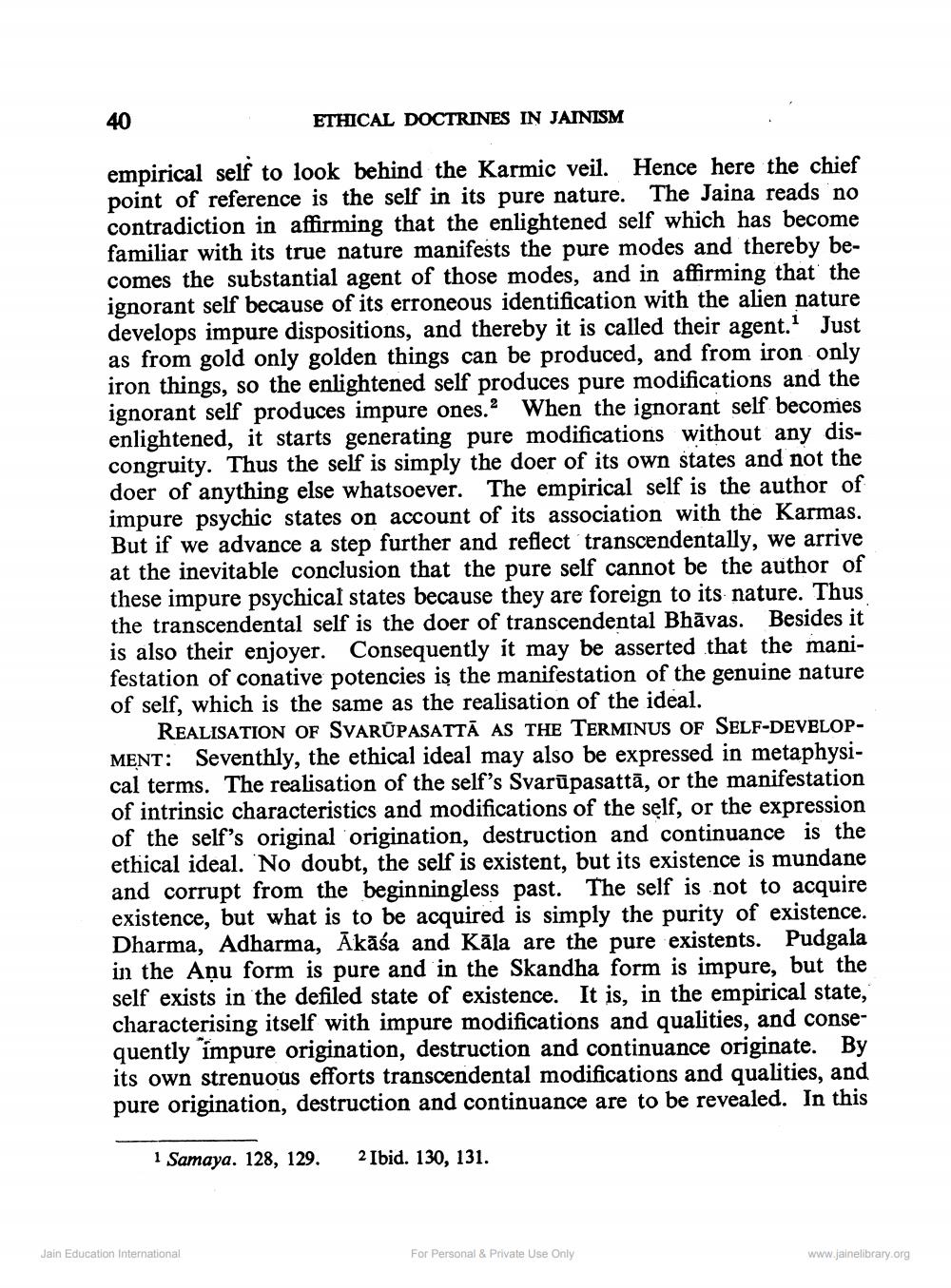________________
40
ETHICAL DOCTRINES IN JAINISM
empirical self to look behind the Karmic veil. Hence here the chief point of reference is the self in its pure nature. The Jaina reads no contradiction in affirming that the enlightened self which has become familiar with its true nature manifests the pure modes and thereby becomes the substantial agent of those modes, and in affirming that the ignorant self because of its erroneous identification with the alien nature develops impure dispositions, and thereby it is called their agent. Just as from gold only golden things can be produced, and from iron only iron things, so the enlightened self produces pure modifications and the ignorant self produces impure ones. When the ignorant self becomes enlightened, it starts generating pure modifications without any discongruity. Thus the self is simply the doer of its own states and not the doer of anything else whatsoever. The empirical self is the author of impure psychic states on account of its association with the Karmas. But if we advance a step further and reflect transcendentally, we arrive at the inevitable conclusion that the pure self cannot be the author of these impure psychical states because they are foreign to its nature. Thus the transcendental self is the doer of transcendental Bhāvas. Besides it is also their enjoyer. Consequently it may be asserted that the manifestation of conative potencies is the manifestation of the genuine nature of self, which is the same as the realisation of the ideal.
REALISATION OF SVARŪPASATTĀ AS THE TERMINUS OF SELF-DEVELOPMENT: Seventhly, the ethical ideal may also be expressed in metaphysical terms. The realisation of the self's Svarūpasattā, or the manifestation of intrinsic characteristics and modifications of the self, or the expression of the self's original origination, destruction and continuance is the ethical ideal. No doubt, the self is existent, but its existence is mundane and corrupt from the beginningless past. The self is not to acquire existence, but what is to be acquired is simply the purity of existence. Dharma, Adharma, Ākāśa and Kāla are the pure existents. Pudgala in the Aņu form is pure and in the Skandha form is impure, but the self exists in the defiled state of existence. It is, in the empirical state, characterising itself with impure modifications and qualities, and consequently impure origination, destruction and continuance originate. By its own strenuous efforts transcendental modifications and qualities, and pure origination, destruction and continuance are to be revealed. In this
1 Samaya. 128, 129.
2 Ibid. 130, 131.
Jain Education International
For Personal & Private Use Only
www.jainelibrary.org




